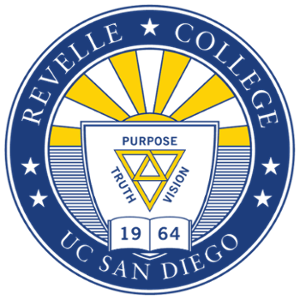Humanities 4. Enlightenment, Romanticism, Revolution
How I think about HUM 4...
HUM 4 covers the emergence and drama of distinctively modern forms of life, highlighting tensions that remain with us today. For example, with the Scientific Revolution, the rise of science and the power of rational ways of thinking gave importance to highly specific laws, whether in the form of laws of nature or laws of morality and politics. At the same time, with the French Revolution and its rejection of absolute power and the subjection (or slavery) that came with it, individual freedom came to be viewed as absolutely fundamental.
This gives rise to a deep paradox: how is it possible to be radically free and subject to (rationally) binding laws, which, by definition, restrict our freedom? Further, although reason can be a powerful tool not just in science, but also for criticizing unjustifiable practices, it seems wrong, or at least one-sided, to reject what has worked in the past (at least for some) and to ignore how people feel about the most important things in their lives (such as deciding on a life partner or how to raise a family). In this way, we see the origin of a clash that continues unresolved to this day between individual freedom and communal bonds, between the authority of science and the passions of our feelings, and between the head and the heart.
Eric Watkins, Distinguished Professor, Philsophy
Winter 2026 Schedule
Please see the Schedule of Classes for a complete listing of days and times for each lecture and section. The Schedule of Classes will also include the reading list for each instructor.
A00 Lyon
Professor Antony Lyon: Humanities 4 A00
| Section | Teaching Assistant |
|---|---|
| A01 | Camille Uglow |
| A02 | Camille Uglow |
| A03 | Stephen Reynders |
| A04 | Stephen Reynders |
| A05 | Bailey Sneed |
| A06 | Bailey Sneed |
| A08 | Miguel Sanchez Morchequo |
| A09 | Miguel Sanchez Morchequo |
B00 Markman
Professor Kristina Markman: Humanities 4 B00
| Section | Teaching Assistant |
|---|---|
| B01 | Kelly Morrow |
| B02 | Kelly Morrow |
| B03 | Russell Peck |
| B04 | Russell Peck |
| B05 | Scott Lancaster |
| B06 | Scott Lancaster |
| B07 | Katie Salazar |
| B09 | Kelly Morrow |
| B10 | Kelly Morrow |
What Will I Read?
As we enter the modern world, the variety of available texts increases, and as a result booklists for HUM 4 can be quite different from one another. Here are a few commonly taught core texts:
- John Locke, Second Treatise on Government
- Jean-Jacques Rousseau, Discourse on the Origin of Inequality
- Voltaire, Candide
- Mary Shelley, Frankenstein
- Frederick Douglass, “What to the Slave Is the Fourth of July?”
